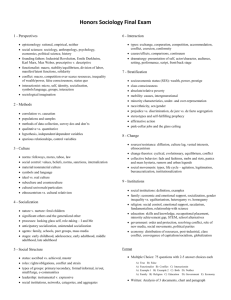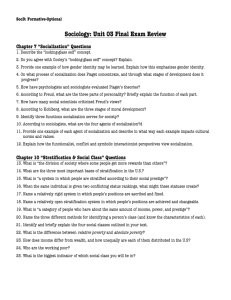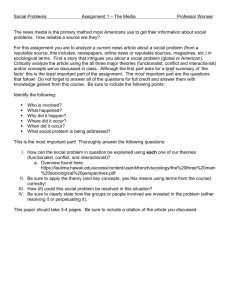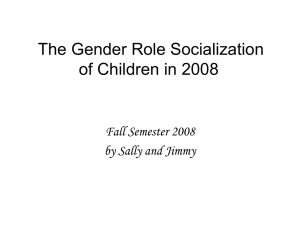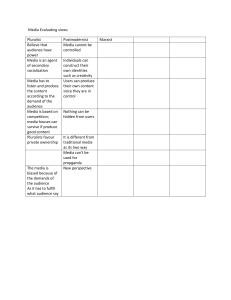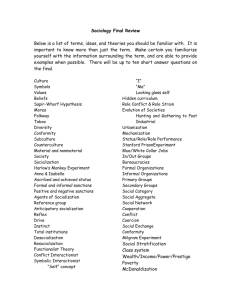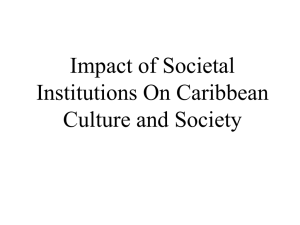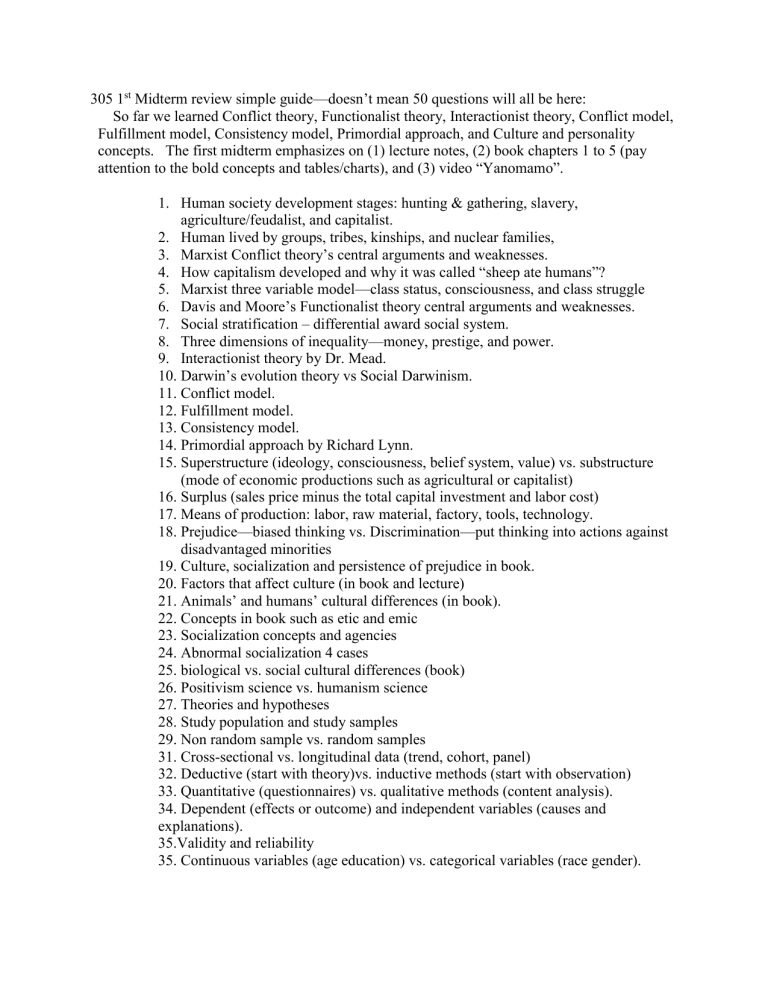
305 1st Midterm review simple guide—doesn’t mean 50 questions will all be here: So far we learned Conflict theory, Functionalist theory, Interactionist theory, Conflict model, Fulfillment model, Consistency model, Primordial approach, and Culture and personality concepts. The first midterm emphasizes on (1) lecture notes, (2) book chapters 1 to 5 (pay attention to the bold concepts and tables/charts), and (3) video “Yanomamo”. 1. Human society development stages: hunting & gathering, slavery, agriculture/feudalist, and capitalist. 2. Human lived by groups, tribes, kinships, and nuclear families, 3. Marxist Conflict theory’s central arguments and weaknesses. 4. How capitalism developed and why it was called “sheep ate humans”? 5. Marxist three variable model—class status, consciousness, and class struggle 6. Davis and Moore’s Functionalist theory central arguments and weaknesses. 7. Social stratification – differential award social system. 8. Three dimensions of inequality—money, prestige, and power. 9. Interactionist theory by Dr. Mead. 10. Darwin’s evolution theory vs Social Darwinism. 11. Conflict model. 12. Fulfillment model. 13. Consistency model. 14. Primordial approach by Richard Lynn. 15. Superstructure (ideology, consciousness, belief system, value) vs. substructure (mode of economic productions such as agricultural or capitalist) 16. Surplus (sales price minus the total capital investment and labor cost) 17. Means of production: labor, raw material, factory, tools, technology. 18. Prejudice—biased thinking vs. Discrimination—put thinking into actions against disadvantaged minorities 19. Culture, socialization and persistence of prejudice in book. 20. Factors that affect culture (in book and lecture) 21. Animals’ and humans’ cultural differences (in book). 22. Concepts in book such as etic and emic 23. Socialization concepts and agencies 24. Abnormal socialization 4 cases 25. biological vs. social cultural differences (book) 26. Positivism science vs. humanism science 27. Theories and hypotheses 28. Study population and study samples 29. Non random sample vs. random samples 31. Cross-sectional vs. longitudinal data (trend, cohort, panel) 32. Deductive (start with theory)vs. inductive methods (start with observation) 33. Quantitative (questionnaires) vs. qualitative methods (content analysis). 34. Dependent (effects or outcome) and independent variables (causes and explanations). 35.Validity and reliability 35. Continuous variables (age education) vs. categorical variables (race gender).
